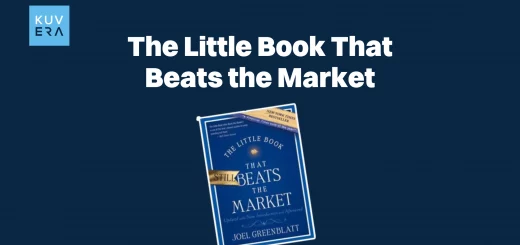Mutual funds, ETFs, and hedge funds are some of the most popular investment options. All these involve mobilizing funds to create a large corpus that fund managers professionally manage. Investments are made in various financial securities with the primary aim of risk mitigation and generating substantial returns.
To know more about these investment options and their differences, read on!
What Are Hedge Funds?
Hedge funds refer to investment vehicles that allocate a substantial investment corpus to unconventional assets. These privately pooled funds invest in derivatives, venture capital, currency, real estate, etc. It is not mandatory for hedge funds to be registered with SEBI. Hedge funds in India are governed by SEBI (AIF) Regulations, 2012.
Types of Hedge Funds
Here are the different types of hedge funds:
-
Offshore hedge funds
These funds are based in a different country from the origin country. Fund houses locate these offshore funds in a country with low tax rates. They mainly invest in overseas assets.
-
Domestic hedge fund
Only residents of the country where the privately pooled investment fund is located are eligible to invest their money in this type of hedge fund. These are subject to taxation laws of the origin country.
What Are Mutual Funds?
A mutual fund is again a privately pooled investment option. Fund managers of mutual fund schemes invest in equity, debt, and other asset classes as per the fund’s requirements. It allows investors to get exposure to shares at a lower price than direct investment.
Moreover, investments through mutual funds provide investors with portfolio diversification, expert consultation/advice, and ease of investment.
Investors receive units of mutual funds in return for investing their money. The Net Asset Value of funds changes each day at the end of every trading session.
Types of Mutual Funds
The different types of mutual funds based on the underlying asset class are given below:
-
Equity mutual funds
These equity funds primarily invest in equity and equity-related instruments. There are subcategories in equity funds, such as small-cap funds, mid-cap funds, large-cap, and multi-cap funds, which must invest in stocks adhering to SEBI’s market capitalization and asset allocation guidelines. For example, large-cap funds must invest at least 80% of the fund corpus in large-cap stocks.
-
Debt funds
Debt Funds invest their money in debt instruments (fixed-income instruments). Debt instruments include corporate bonds, certificates of deposit, debentures, government securities, etc.
- Hybrid mutual funds invest in multiple asset classes, including equity and debt, adhering to SEBI regulations.
What Are ETFs?
Exchange-traded funds are similar to traditional mutual funds that follow a particular index. A significant feature of an ETF is that you can trade the units of an ETF on stock exchanges just like equity shares, and their NAV or Net Asset Value changes during trading sessions.
For example, the SBI – ETF Nifty 50 tracks and invests in all the Nifty 50 index stocks. The weightage of stocks in the portfolio is similar to the weightage given to these stocks in the Nifty 50 index.
Types of ETFs
Here are some popular types of ETFs:
-
Index ETFs
These ETFs track and follow a specific index like Sensex, Nifty 50, etc. Fund managers just replicate the performance of the underlying benchmark index.
-
International ETFs
These ETFs invest in shares of international companies. The main aim of these ETFs is to replicate what is happening in a foreign market.
-
Gold ETF
As the name suggests, these Gold ETF funds invest in bullion markets only. Investors will not receive physical gold, but they will benefit from changes in the price of gold. It is buying and selling gold without actually having to hold the gold physically.
Hedge Funds vs Mutual Funds vs ETFs
Differences between these investment options are as follows:
| Parameter | ETF | Mutual Fund | Hedge Fund |
| Management | ETFs are passively managed funds where the managers replicate the performance of the underlying benchmark index | Fund managers actively or passively managed mutual funds. They prepare strategies and use their insights to generate returns for their clients. | Hedge fund managers actively manage hedge funds. All decisions regarding the underlying asset class are taken by them. |
| Liquidity | ETFs have very high liquidity because units are tradable on stock exchanges. | Mutual funds are less liquid than ETFs but more liquid than hedge funds. | Hedge funds have the least liquidity among the three. |
| Expense ratio | These come with a meager expense ratio. However, investors have to pay brokerage charges, STT, and other fees for trading on the stock exchange. | The expense ratio of actively managed mutual funds is higher than ETFs. It includes operational and administrative costs, which are pretty high in a mutual fund. | The expense ratio is relatively high in the case of hedge funds. |
| Investors | Retail and small investors primarily invest in these funds. | Both retail investors and HNIs allocate their funds to mutual funds | However, for hedge funds, the bulk investment comes from large institutions and HNIs. |
| Transparency | All transactions and holding-related information are disclosed daily. | In mutual funds, details about the schemes, for example, portfolio holdings are disclosed every month. | For hedge funds, only their investors have access to disclosures and reports. |
Final Word
Hedge funds, exchange-traded funds, and mutual funds are investors’ most preferred investment options. They have a different target audience and are quite different in their work. You can go through this guide as this will help you make an informed decision about where you should invest your funds.
Pro tip: Start investing through a platform that brings goal planning and investing to your fingertips.
Frequently Asked Questions
-
What is an expense ratio?
An expense ratio is a fee that a fund house levies on the investors to cover the cost incurred for running the fund. The various expenses include fund management fees, distribution charges, advertisement expenses, etc.
-
Do mutual funds offer any tax benefits?
As per Section 80C of the IT Act, investments of up to Rs. 1.5 lakh in ELSS can be claimed as a tax deduction.
-
What is the minimum investment in a hedge fund?
A fund is only classified as a hedge fund if the minimum corpus of the fund is Rs. 20 crores and at least Rs. Each investor invests 1 crore.
Interested in how we think about the markets?
Read more: Zen And The Art Of Investing
Check out all our “Investor Education Originals” videos on Youtube and get smart about investing.
Start investing through a platform that brings goal planning and investing to your fingertips. Visit Kuvera.in to discover Direct Plans and Fixed Deposits and start investing today.
#MutualFundSahiHai #KuveraSabseSahiHai #PersonalFinance #InvestorEducation











